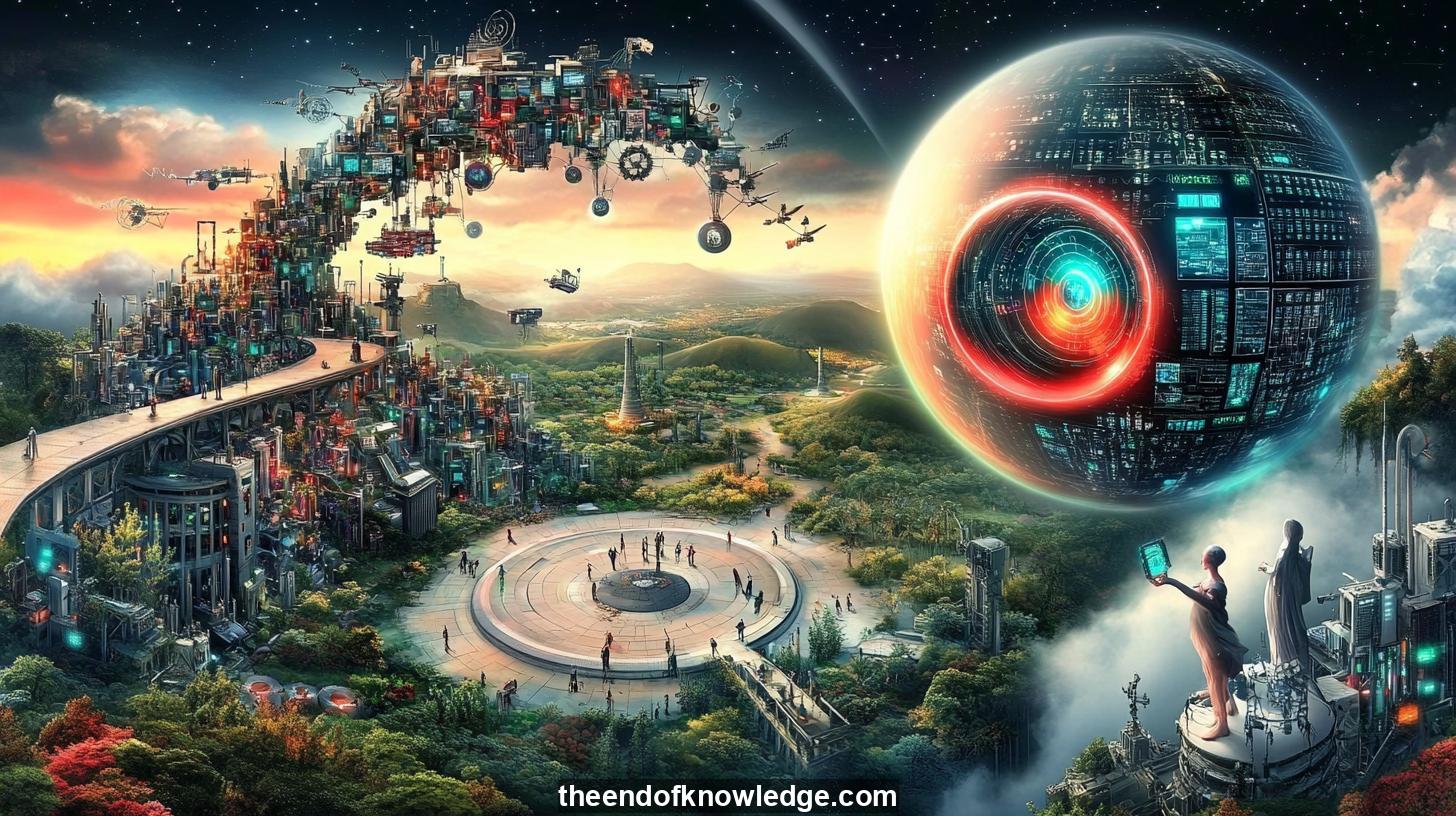 >
>
Concept Graph, Resume & KeyIdeas using DeepSeek R1 :
Resume:
The discussion revolves around the future of humanity in the age of artificial intelligence (AI), exploring the potential evolution of humans and the ethical implications of emerging technologies. The series *Human X* is introduced as a platform for debating these changes, focusing on how humans might adapt and interact with advanced AI. The conversation touches on themes such as transhumanism, the integration of technology into biology, and the ethical considerations of creating super-intelligent beings. Speakers emphasize the need for ethical frameworks to guide AI development and the importance of maintaining human values in a rapidly changing world. The debate also addresses the potential for AI to either enhance or diminish human capabilities, with a focus on the psychological, social, and economic impacts of these technologies. The discussion concludes by highlighting the uncertainty of the future but underscores the importance of human adaptability and the need for ethical responsibility in shaping the next phase of human evolution.30 Key Ideas:
1.- The series *Human X* debates the future of humanity in the age of artificial intelligence.
2.- The integration of technology into human biology raises ethical and philosophical questions.
3.- Transhumanism and the concept of "Human X" suggest a new phase of human evolution.
4.- AI could either enhance or diminish human capabilities, depending on its development and use.
5.- Ethical frameworks are crucial to ensure AI aligns with human values and promotes societal good.
6.- The psychological impact of technology on human behavior and cognition is a growing concern.
7.- Super-intelligence could potentially surpass human intelligence, leading to unforeseen consequences.
8.- The debate highlights the need for global cooperation to regulate AI and ensure equitable access.
9.- Privacy and data security are critical issues as technology becomes more integrated into daily life.
10.- The potential for AI to create social divides or castes based on access to advanced technologies is discussed.
11.- Empathy and human connection may be challenged as interactions with machines become more prevalent.
12.- The role of empathy in shaping a future with AI is emphasized as a uniquely human trait.
13.- AI could revolutionize industries like healthcare, education, and transportation.
14.- The ethical implications of genetic modification and brain-computer interfaces are explored.
15.- Speakers stress the importance of education and critical thinking in navigating the AI-driven future.
16.- The balance between technological progress and human well-being is a central theme.
17.- The potential for AI to solve global challenges like climate change is discussed.
18.- The psychological effects of constant connectivity and information overload are examined.
19.- The future of work and the displacement of jobs by AI are significant concerns.
20.- The importance of diversity in perspectives and expertise in shaping AI policies is highlighted.
21.- The need for transparency and accountability in AI development is emphasized.
22.- The potential for AI to enhance human creativity and problem-solving is explored.
23.- The ethical dilemmas of AI surveillance and data collection are discussed.
24.- The importance of preserving human identity in a world of advancing technology is stressed.
25.- The potential for AI to create new forms of art, culture, and human expression is considered.
26.- The psychological impact of relying on AI for decision-making is examined.
27.- The need for global agreements to regulate AI and prevent misuse is discussed.
28.- The potential for AI to address inequality and promote social justice is explored.
29.- The importance of human adaptability in the face of rapid technological change is emphasized.
30.- The future of humanity may depend on balancing innovation with ethical responsibility.
Interviews by Plácido Doménech Espí & Guests - Knowledge Vault built byDavid Vivancos 2025